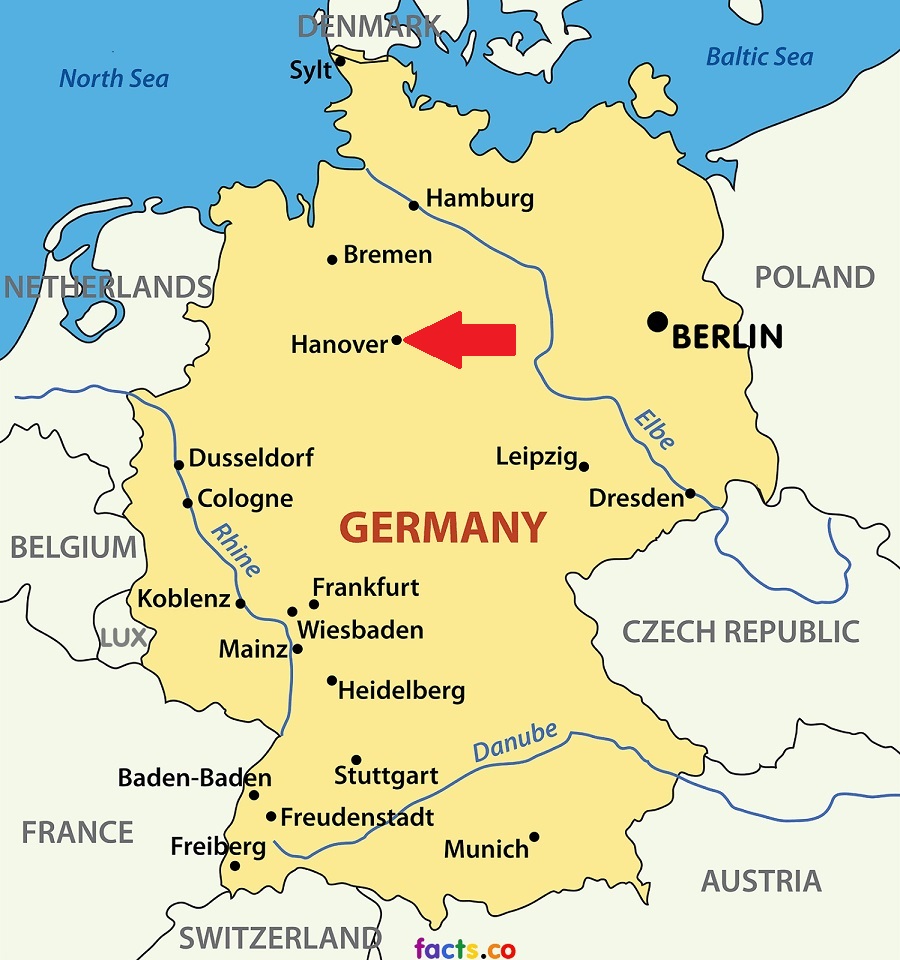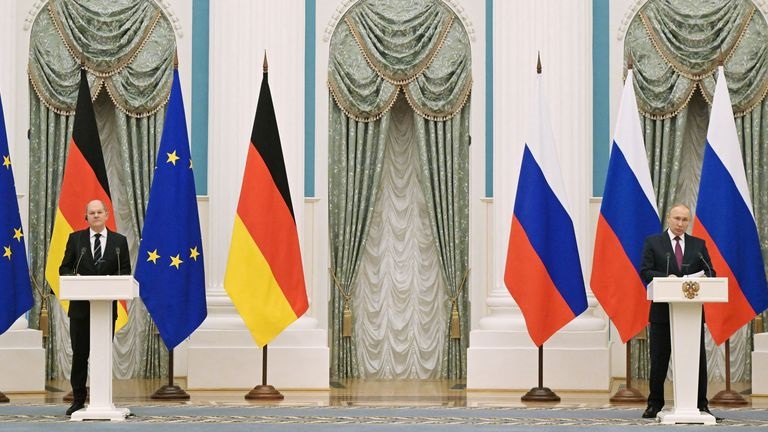Hanover, a city in the northwest of Germany, has become the first major metropolitan area to try and reduce the use of natural gas by removing hot water from public buildings. The move comes as natural gas supplies from Russia are reduced to 20% of capacity. Germany is attempting to fill up storage facilities of natural gas in order to survive the winter.
 Germany, together with several European countries, are telling their citizens to expect large increases in their electricity bills as energy costs continue to skyrocket.
Germany, together with several European countries, are telling their citizens to expect large increases in their electricity bills as energy costs continue to skyrocket.
Germany does not have any LNG terminals to receive shipments of natural gas into ports, they are dependent on pipelines from Russia. They are urgently trying to reduce the current amount of natural gas being consumed.
(Via Daily Mail) – […] Other desperate gas-saving measures include switching off public fountains and blacking out night-time lights on major buildings such as the town hall and museums. The city’s mayor, Belit Onay, spoke of an ‘imminent gas shortage’ that meant they had to reduce the city’s energy consumption by 15 per cent.
[…] There will also be a ban on portable air conditioners, heaters and radiators among the general populace as the average German begins to pay a price for standing up to the Russian dictator.
[…] Germany, like most of Europe, has been enjoying a hot summer which should soften the blow of the cold showers, but public officials are introducing the measures now in fear of what awaits them when the season turns.
Gazprom, the Russian state energy giant, has been giving European leaders sleepless nights by disrupting the flow of gas via its Nord Stream 1 pipe line.
They cut the flow to 40 per cent in June, citing maintenance issues, and this week they reduced the gas supply through the pipe to just 20 per cent.
These reductions, which EU energy chief Kadri Simson dismissed as ‘politically motivated’, have seen energy bills soar, governments struggle to fill gas storage facilities and energy-intensive heavy industries wondering if they can keep the factories running.
Russia denies that it is deliberately throttling supply to cause pain and instability in Europe, but few doubt that it is a deliberate ploy to punish what it calls ‘unfriendly countries.’
In response, European Union countries agreed to a controversial, bloc-wide 15 per cent reduction in gas usage on Tuesday that is hoped will reduce the pressure on European countries most vulnerable to Russian energy blackmail. (read more)

Exactly. Can’t see the ” New “Germans putting up with this crap. Perhaps an unlocked for sliver lining…..they might go home? 😂
Globalists just keep poking the bear, everywhere they go, and how stupid it was for Germany’s “leaders” to poke that Russian bear by siding with fellow globalists to defend saintly, innocent, Biden-family infested Ukraine.
There you have it folks. Your New World Order, the Great Reset, Climate Change shenanigans, Go Green shenanigans. No people of the world. It is the Final Solution. You are to be eliminated because the elite world order does not want to share with you.
Educated idiots cones to mind.
And the Germans laughed at Trump 3 years ago, at his ridiculous statements about Russia- so they said. Karma is a mother trucker. Who is laughing now?
So Germany installed gas turbines as back up for greenie weenie wind and solar.
Shut down coal.
Sounds like a pandemic of ding dongery.
8.41 USD per MMBtu
Germany 43.00
(Our daughter PhD EE power systems.) The world is facing shipwreck political consequences.
By the way, they can drill shallow Coal Bed methane wells. Kansas for example has ended all coal mining but there were a couple of companies drilling for coal bed methane. Methane, butane, propane etc are a ranges of gases in Natural gas.
Biden’s War on Energy & Food is going to lead to a reduction in living standards of 20-25%. That is the math. The pain will not be felt equally, so middle class folks better hunker down and prepare for a very rough ride.
“God shall not be mocked.” Voter fraud? Liberals have have no idea the retribution they are facing from God.
And us.
Where are the windmills and solar panels powering all of Germany?
Oh yeah, they can’t!
Maybe we could all take a lesson from this, no?
Too many Americans are just to ignorant and stupid. You saw this with the SCAMdemic. So America will continue to have such SCAMS, like the green energy one and dozens more to ensure the commies take over completely shortly. See, no invasion of America was needed! The “invasion” came from within and was voted for, over and over. LOL!
The Germans have Merkel to thank, and Americans have Bushies, Clintonistas, Obamaites, and Bid-ens to thank.
But Above All We must thank ourselves for being either so F-ing Stupid, Or So Gutless.
Why???? Do We Obey these Degenerates in DC???? Open Up the Oil Wells and when the Feral Polezi show up, We turn up!!
Armed to the teeth. Then let God decide what happens.
I’m looking forward to President Trump’s first meeting with our NATO allies in 2025 so he can look them in the eye and tell them “I TOLD YOU SO” about becoming too reliant on Russian energy.
the communists are NEVER ever going to let trump win
probably be no more elections
The only thing propping up my mood about all of this is the knowledge that all of the stupid people who voted for leaders like Onay and Biden are paying the price, big time. Even wealthy people are paying, those private jet trips are much more expensive now, as are the utilities for their numerous wasteful mansions. But mostly the vast numbers of people on the lesser economic rungs. Hopefully some of them learn their lesson.
Globalists, and green energy blowhards get their first lesson in reality. LESSON: You are an idiot if you put your life in the hands of a tyrant!
If it’s a cold winter, it’ll be all the colder in tents
They’re gonna need to be using that guard tower
‘There Will be Problems’ Open Borders-Loving EU States Running Out of Places to Put Migrants
Open borders loving states within the European Union have been forced to set up tent cities after running out of places to put migrants.
Which city in the USA will be the first to adopt similar policies?
They have to figure out which American citizens to round up first, so that they can give their houses and apartments to illegals
Then the Americans will go in the tents
Couldn’t they just blend in in Portland and SanFran?
They should urgently make peace with Russia and establish normal relations. If the EU has a problem with this, they can just tell them the same thing Vicky Nuland said about them.
They deserve what happens to them.